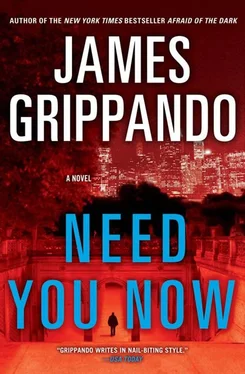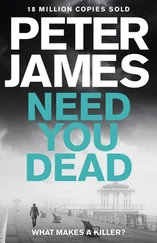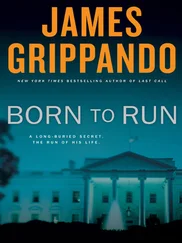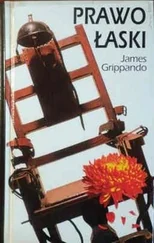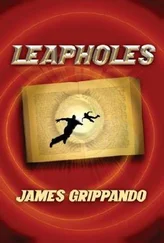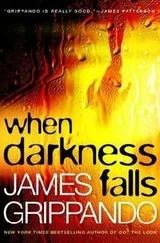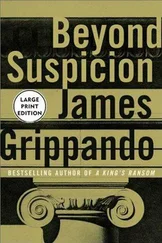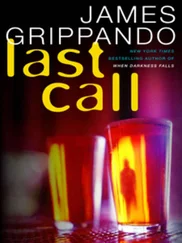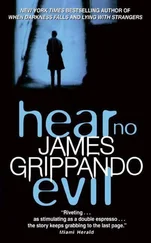I didn’t answer. This one was taking a while to sink in.
Evan looked away. “Okay, fine. Now you’re exactly like everyone else. You think Evan Hunt is some kind of crackpot who sees a conspiracy brewing in every government office.”
I was still thinking, still trying to wrap my mind around the full implications of what Evan was saying.
Evan got up from the computer, walked to the refrigerator, and got a soda. “I should have kept my mouth shut,” he said, grumbling.
“No,” I said, “I don’t think you’re a crackpot.”
“You don’t?”
“Not at all.”
“Then what do you think?”
I didn’t view the world entirely through the prism of old movies, but sometimes the fit was too perfect.
“Evan,” I said, “I think this could be the start of a beautiful friendship.”
B y eight P.M. it had been dark in the Boston area for over three hours, and Tony Mandretti was fading in and out of sleep.
Lemuel Shattuck Hospital Correctional Unit is a medium-security facility in Jamaica Plain. Twenty-three acute-care beds serve inmates from across Massachusetts-and, in the case of Tony Mandretti, from North Carolina.
Tony’s treatment for non-Hodgkins lymphoma was an uphill battle. Unfortunately, his participation in a clinical trial at the Duke University Medical Center had proved that, at least for Tony, monoclonal antibodies were not the answer. Since then, he’d received chemotherapy and radiation, which was debilitating enough even under ideal circumstances. He was in a rest phase of the treatment cycle, and the trip from North Carolina to Massachusetts had completely worn him out. Hospitalization wasn’t essential, but the plan was to keep him at Lemuel Shattuck for a week or so, until permanent reassignment to a correctional facility.
“Wake up, Carlson,” the guard said.
It took a full minute to recall where he was, and only then did he remember that he was Carlson. Sam Carlson, to be exact. Tony Martin was no more, having gone the way of Tony Mandretti.
“Let me sleep,” he said.
The guard switched on the fluorescent light, brightening a small room that was about as homey as a prison cell-no more, no less. A bed, tray table, and a chair were the only furnishings. No rug on the gray tile floor, no pictures on the beige walls. There was a small mirror over the sink, but as a rule he avoided mirrors. A kindly nurse had told him that the hair loss made him look like Bruce Willis, but he didn’t feel remotely like a movie star. The bars on the window were definite overkill; it was highly unlikely that an inmate undergoing cancer treatment would escape from an eighth-floor unit.
“You have a visitor,” the guard said.
“Who?”
“The FBI.”
Tony wasn’t expecting anyone, let alone an FBI agent. He realized, however, that Sam Carlson hadn’t been in existence long enough for the visit to be for him. The FBI had come to see Tony Martin-or, more likely, Tony Mandretti. He didn’t bother asking the guard what this was about; a corrections officer would have no idea.
“All right, I’m awake,” said Tony.
With the push of a button, he raised the mattress to an upright position. The guard told him to sit tight for a few minutes-Tony didn’t bother to tell him that he wasn’t going anywhere-and then he stepped out, leaving the door open. Tony heard voices in the hallway, but he couldn’t make out the conversation. He was still shaking off sleep, and as his mind cleared, it occurred to him that he hadn’t asked for the agent’s name. A visit from the FBI raised several possibilities, some better than others.
There was only one that he considered friendly-only one agent who had earned his trust.
Tony had first met Agent Scully in Operation Clean House, the undercover sting that had sent eleven members of the Santucci organized crime family to prison. Scully had been Tony’s contact throughout the assignment, and the relationship had continued after the trial, in witness protection, when Tony Mandretti became Tony Martin. Years later, Scully again had been Tony’s chosen contact-when Tony had the goods on Abe Cushman.
Evan Hunt had been trying to pay back Tony Mandretti for years, ever since Mandretti had spared his life. Tony had explained many times that his refusal to carry out the hit was based on personal principle, devoid of any consideration of who Evan was or whether he deserved mercy. Evan could have just left him alone, and Tony would have called it even. Then Evan had shown him the Cushman red flags-and he had explained the whistle-blower program. He’d promised a fifty-fifty split of the bounty if Tony would present his analysis to the feds. After a visit to Scully, all indications were that Tony and Evan would be two very rich men. Then something had changed. Something on the government’s end had changed radically. It had left Tony dumbfounded. He’d asked Scully to explain it, and Scully had stumbled through an apology for his complete inability to do so.
Not even the side effects of chemotherapy could erase the memory of that conversation. Scully’s words came back to him as he lay there, waiting. He wondered if the only FBI agent he’d every really trusted had finally come back to tell him what in the world had gone wrong-before his cancer made it too late.
“I ’m sorry,” said Scully. “It’s absolutely mind-boggling to me. I can’t get anyone to bite on this.”
They were in a dark booth, practically alone in a bar in Soho. Tony took a long pull from a bottled beer, then scratched his head.
“You realize it’s all there in the report, right?” said Tony. “Everything you need to bring Cushman down is laid out on a silver platter. I didn’t write it, but I didn’t make this shit up. It’s all true.”
“No one’s saying you made it up,” said Scully.
“You need to make them understand it.”
“It’s not a lack of understanding,” said Scully.
“What is it then? They choose to ignore it?”
Scully didn’t answer.
Tony said, “The fucking regulators choose to ignore the biggest Ponzi scheme in the history of the world?”
Scully looked around, uneasy. “Lower your voice, dude.”
Tony breathed in and out. He needed a cigarette.
Scully said, “I told you all I know, Tony.”
“You told me they aren’t listening. You’re not telling me why.”
“I don’t know why.”
“Then find out.”
“I tried.”
“Try harder,” said Tony. “You owe me that much. Without me, you had no case against the Santucci family. I gave up everything-my name, my family, my existence. I’ve never asked for nothing in return.”
“Don’t ask for this,” said Scully.
“I’m asking. What’s the deal?”
Scully looked away, then back. “It’s classified.”
“What’s classified?”
Scully’s expression turned very serious. “There’s something else going on with Cushman. Something that has me beating my head up against the wall trying to get the regulators’ attention.”
“Are they embarrassed that they weren’t the ones to figure it out? Is that it?”
“No, these guys have no shame. They’d figure out a way to take credit.”
“Well, whatever their reason is, they can’t make me go away by ignoring me. If they won’t pay me a bounty, I’ll sell the report to the Wall Street Journal .”
“The Journal isn’t into checkbook journalism.”
“Then I’ll find someone who is.”
“No rag sheet is going to pay you a million dollars for a financial story.”
“I don’t need a million. All I want is my money back from Gerry Collins. Two hundred fifty grand.”
Читать дальше
